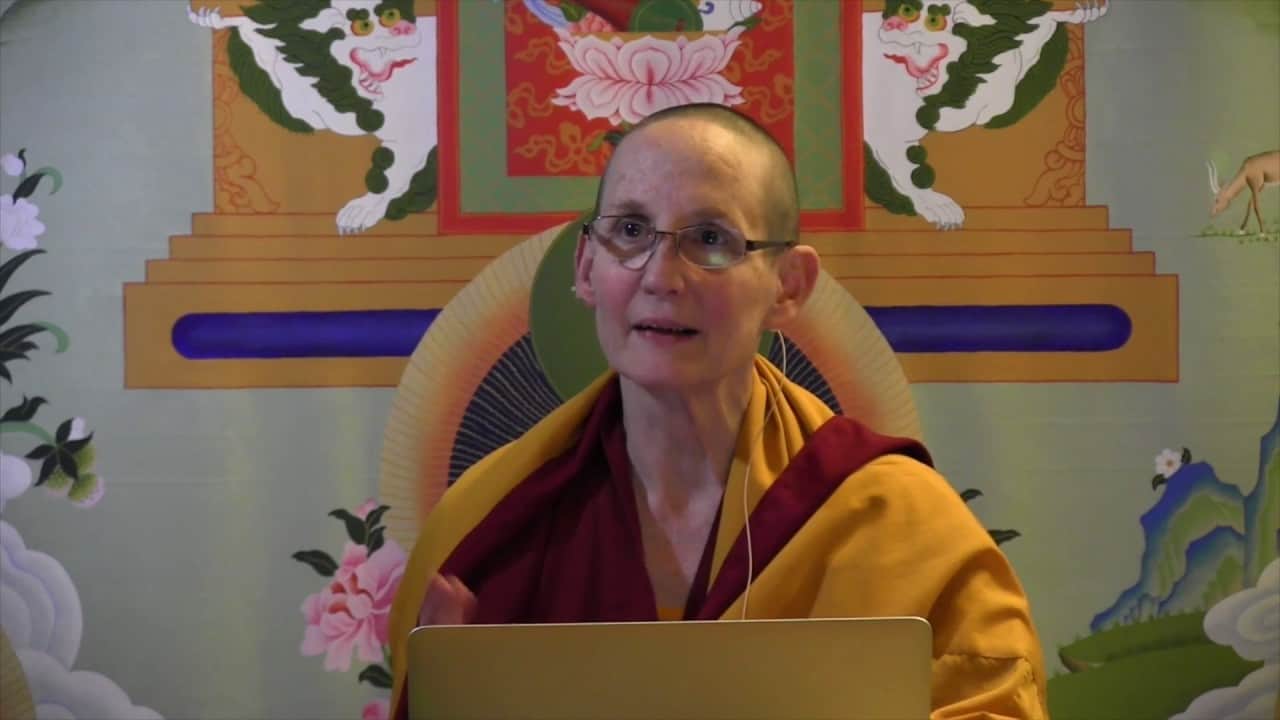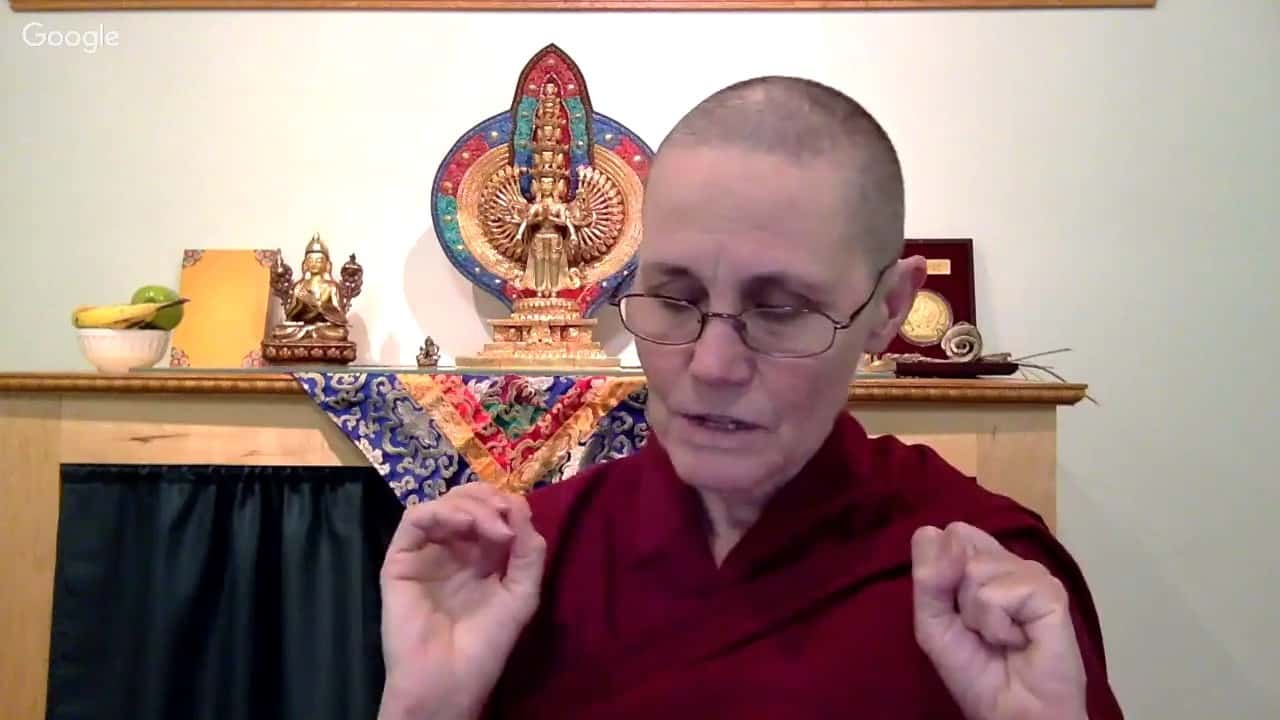Gomchen Lamrim review: The afflictions
Part of a series of teachings on the Gomchen Lamrim by Gomchen Ngawang Drakpa. Visit Gomchen Lamrim Study Guide for a full list of contemplation points for the series.
- The nature of the afflictions and how they fuel a cycle of negativity
- The four attributes of true origins
- Definitions of the root afflictions and how to identify them in the mind
- Factors that stimulate the arising of the afflictions
- Guided meditation on working with afflictions
- Disadvantages of and antidotes for the afflictions
Gomchen Lamrim 66 review: The afflictions (download)
Contemplation points
Included below is the meditation that Venerable Chonyi led during the review, along with extra points brought in from the review itself.
- Think back to the last 24-48 hours, maybe 72 hours, a week… think of an incident where you had a flaring affliction. Just notice. It doesn’t have to be a big blow up. It doesn’t have to be public. Just in our own mind. Think about a situation or moment when an affliction was really big in your mind.
- First of all, identify what it was.
- Then think about the factors that stimulated the arising and see if you can come up with what all was involved in bringing that affliction up (factors: latencies, contact, detrimental influences, media/verbal stimuli, habits, inappropriate attention).
- What do you see operating in your own mind?
- What are the disadvantages of the affliction?
- Consider that we are NOT our afflictions. Afflictions are adventitious, obscuring the clear nature of our minds. Try to connect with that awareness.
- What antidotes can be applied next time such a situation arises or the next time that affliction arises?
- Resolve to familiarize your mind with the afflictions, the factors that stimulate their arising, as well as the antidote for each specific affliction. This is so incredibly important to do when afflictions aren’t strong in your mind. Practice every day on the little disturbances you experience to build strength in working with the bigger ones.
- And finally… rejoice in EVERY effort, no matter how small you think it is (remember the second characteristic of karma is that it grows!) and remember, we’re not going to change overnight. Most important is that we start to habituate new ways of thinking, new ways of working with the afflictions, and begin to challenge them. Taking things moment by moment, day by day, eventually, with practice, we WILL become more adept at transforming our afflictions in a skillful and beneficial way.
Venerable Thubten Chonyi
Ven. Thubten Chonyi is a nun in the Tibetan Buddhist tradition. She has studied with Sravasti Abbey founder and abbess Ven. Thubten Chodron since 1996. She lives and trains at the Abbey, where she received novice ordination in 2008. She took full ordination at Fo Guang Shan in Taiwan in 2011. Ven. Chonyi regularly teaches Buddhism and meditation at the Unitarian Universalist Church of Spokane and, occasionally, in other locations as well.


